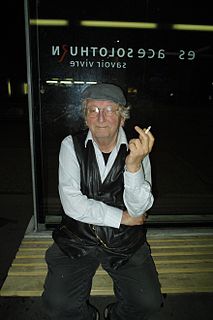A Quote by Jared Kushner
Related Quotes
I'm an old guy, and I was protesting during the Vietnam War. We killed fifty Asians for every loyal American. Every artist worth a damn in this country was terribly opposed to that war, finally, when it became evident what a fiasco and meaningless butchery it was. We formed sort of a laser beam of protest. Every painter, every writer, every stand-up comedian, every composer, every novelist, every poet aimed in the same direction. Afterwards, the power of this incredible new weapon dissipated.
Many novelists say, "I'm not a political novelist" - myself included. That's a standard, even a default position. Whereas that divide between art and politics simply isn't possible in many countries. In Hungary, you couldn't be a fiction writer and then, when asked about politics, put your hands up in the air and say "But I'm not a political novelist." If you're a Chinese novelist, a novelist in a country where censorship is such an issue, how do you claim that politics has nothing to do with your writing? It's in your writing, it's shaping your words.
The characters created cannot just be a mouthpiece for the writer. When you look at a piece of writing, and it's genuine and it doesn't feel like every character is just a mouthpiece for the writer, but that they've been created in such a way that they're expressing an idea that a writer wants to get across, that's when a story succeeds.
Basically, it's somebody who got stuck having to interview me who really wants to be a novelist, so they're writing these novellas and I was like, "It's not true, that didn't happen, they just made all that up! Why don't they just go ahead and be a novelist instead of bothering with interviewing me?"
A curiously interested observer sees a great deal, a scientifically interested observer is worthy of all honor, and anxiously interested observer sees what others do not see, but a crazy observer sees perhaps the most, his observation is more intense and more persistent, just as the senses of certain animals are sharper than those of man.
The best advice that an accomplished writer could give a beginning writer is probably, "Find your slide and then grease it." Almost every writer that wants a rewarding career, in terms of money and status and number of readers, finally finds a certain genre or certain style that he or she sticks with until reaching a critical mass of readership. And I've violated this from the get-go.
In journalism just one fact that is false prejudices the entire work. In contrast, in fiction one single fact that is true gives legitimacy to the entire work. That's the only difference, and it lies in the commitment of the writer. A novelist can do anything he wants so long as he makes people believe in it.


































